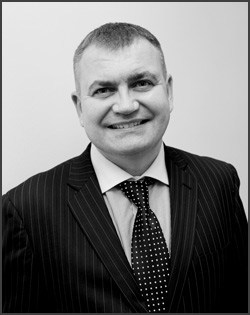By John Joe McGinley, ideas and action planning consultant, Glassagh Consulting
Our society is in the midst of the fourth industrial revolution, driving technological change at a pace we have never witnessed.
A recent MIT study looked at just how fast technological change is happening. It pointed out that while it took electricity and the telephone 25 years to reach 10% penetration, it took tablet computers less than four years to reach this level.
It took an additional 39 years for the telephone to reach 40% penetration, while smartphones did this in five years and now the latest stats show there are now 1.65 billion smartphones in daily use.
However, this is just one element of change.
Demographically, the consumer market place is altering with the maturing of the baby boomers and the rise of the millennials. New technology and consumer behaviour are driving a socio-economic tsunami with the ascendancy of the informed consumer and the growing fashion of self-service. We also have a society that is social media obsessed and an increasingly celebrity influenced world.
So, any individual or business that does not prepare for the change it faces is in danger of missing out on the opportunities that every change always brings.
Remember the asteroid that ended the world of the dinosaurs also allowed the rise of the mammals. Change is a constant of life and business and there is whole industry of professionals who will gladly help any individual or business manage the stressful and sometimes time consuming experience it can bring.
They have a plethora of models and tools to help manage change and most charge a pretty penny for this support. The best piece of free advice I can give you concerning how to manage change is this, the most powerful thing to manage both personal and business change, is to listen!
Listen to your clients and your potential customers, listen to your colleagues, listen to your competitors but most importantly listen to yourself.
LISTEN TO YOUR CLIENTS AND POTENTIAL CUSTOMERS
Real intelligence on the factors creating change comes from dialogue with clients and an awareness of how their lives are evolving.
One of the most salient examples of a business that ignored its customers is Kodak.
Kodak invented digital photography, but believed that consumers would always need the film it produced. They did not realise that the very technology they created would eventually destroy what they believed to be their core market. They also neglected to ask their customers how they would take and share their photographs in the future.
Change is a constant of life and business and there is whole industry of professionals who will gladly help any individual or business manage the stressful and sometimes time consuming experience it can bring
In essence, they failed to anticipate the rise and popularity of smart phone technology.
They realised too late that consumer behaviour is a major driver of change and this eventually resulted in their downward spiral from Fortune 500 leader to bankruptcy.
The lesson for us all is that failure to listen to customers can be fatal for any business.
LISTEN TO YOUR COLLEAGUES
How often do you sit down with your colleagues and discuss the future we are facing as individuals and as a business? The wise business is one which anticipates and prepares for the future. It’s easier to do this as a group rather than as an individual.
I would urge every business to consider holding regular sessions where they look at how the world we operate in is evolving and the opportunities and threats this brings.
It would be sensible to look at four key areas and identify the developments in each. These should be in the form of a PEST analysis, where you review what is happening:
- Politically;
- Economically;
- Socio economically; and
- Technologically.
The secret is to then look at the key issues for your business in each of these areas and prioritise the opportunities and threats that these bring. You can then develop a plan of action for each.
This is a sensible and powerful way in which to harness the ideas, insight and experience of the entire business and manage change collectively, not as individuals.
LISTEN TO YOUR COMPETITORS
There is a quirky quote from the writer and film maker Jean Cocteau, which sums up for me the attitude many in business have towards their competitors: “We must believe in luck, otherwise how can we explain the success of those we do not like!”
Now I am not suggesting most people do not like their competitors, but many do ignore the reasons why others are successful and perhaps some competitor intelligence would be a valuable investment.
It makes sound business sense to review the market place you operate in and identify how others are adapting to change. You can then decide if the tactics they have adopted or the technology they are using is relevant for your business.
This is especially salient in business-to-business professions, where the rise of social media and virtual service is rapidly becoming the norm and changing the profitability of the sector.
A good motto for any business should be: ‘I came, I saw, I liked and I copied!’
LISTEN TO YOURSELF
Too many of us have to react to change when it’s less stressful to be prepared for what is coming. One exercise to help you do this would be to reflect upon your past experiences of change.
You can use what you have learned, both positive and negative, to plan ahead.
A simple exercise is to think about the issues driving change and answer these six questions:
- Where have you been successful in the past?
- How can you expand upon these successes?
- What were your past mistakes?
- What have you learned from these mistakes?
- What ideas have had that you have not acted on?
- Which of these ideas will you go forward with and why?
These answers can identify ideas to take forward that perhaps were not right or ready in the past, but which are now relevant and appropriate for the changes we currently or are about to face.
We can also learn from our past mistakes and ensure we apply our learning and never make the same mistake twice.
Change is never easy for many reasons, but those that are prepared to prosper, can do so with less stress if they have a plan and have listened to the world around them.
Let’s all start listening more.
Photo (above): Travis Isaacs
 About the blogger
About the blogger
John Joe McGinley is passionate and highly motivated marketer and business change consultant with over 29 years’ experience working with businesses helping them with marketing, business change and social media.
After many years working in the UK for major life insurance companies as a business consultant, he has relocated to Ireland with his family and is in the process of establishing his own social media and business change consultancy in the heart of the Donegal Gaeltacht, Glassagh Consulting.




